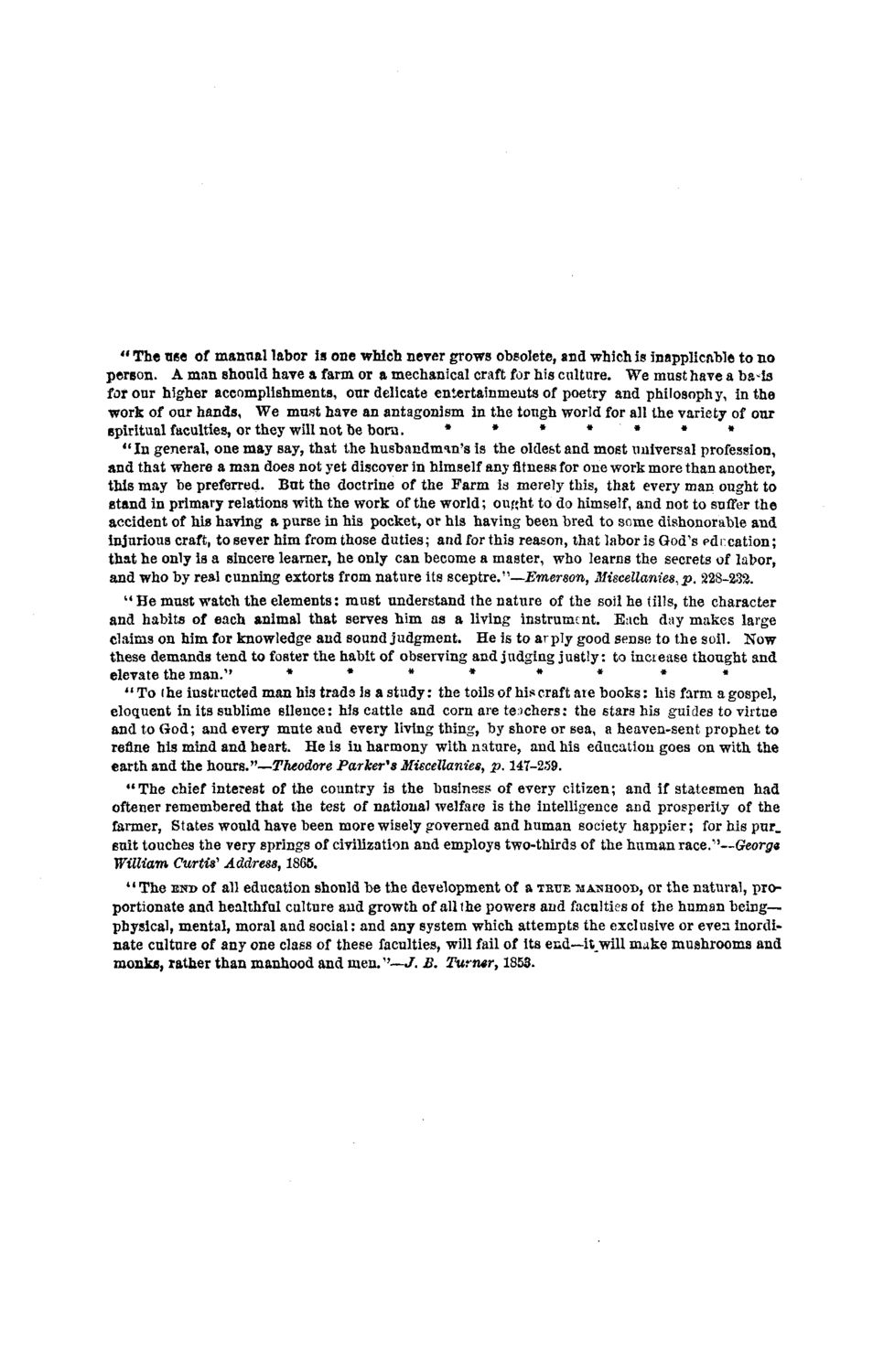| |
| |
Caption: Board of Trustees Minutes - 1868
This is a reduced-resolution page image for fast online browsing.

EXTRACTED TEXT FROM PAGE:
" The use of manual labor is one which never grows obsolete, and which is inapplicnble to no person. A man should have a farm or a mechanical craft for his culture. We must have a ba^is for our higher accomplishments, our delicate entertainments of poetry and philosophy, in the work of our hands, We must have an antagonism in the tough world for all the variety of our spiritual faculties, or they will not be bora. * * * * * * * " I n general, one may say, that the husbandman's is the oldest and most universal profession, and that where a man does not yet discover in himself any fitness for one work more than another, this may be preferred. But the doctrine of the Farm is merely this, that every man ought to stand in primary relations with the work of the world; ou^ht to do himself, and not to suffer the accident of his having a purse in his pocket, or his having been bred to some dishonorable and injurious craft, to sever him from those duties; and for this reason, that labor is God's pdrcation; that he only is a sincere learner, he only can become a master, who learns the secrets of labor, and who by real cunning extorts from nature its sceptre."—Emerson, Miscellanies, p. 228-232. 14 He must watch the elements: must understand the nature of the soil he tills, the character and habits of each animal that serves him as a living instrument. Each day makes large claims on him for knowledge and sound judgment. He is to arply good sense to the soil. Now these demands tend to foster the habit of observing and judging justly: to increase thought and elevate the m a n / ' « * * * « * * * 1 ' To t he instructed man his trade is a study: the toils of his craft are books: his farm a gospel, eloquent in its sublime silence: his cattle and corn are teachers: the stars his guides to virtue and to God; and every mute and every living thing, by shore or sea, a heaven-sent prophet to refine his mind and heart. He is in harmony with nature, and his education goes on with the earth and the hours."—Theodore Parker*s Miscellanies, p. 147-259. " T h e chief interest of the country is the business of every citizen; and if statesmen had oftener remembered that the test of national welfare is the intelligence and prosperity of the fanner, States would have been more wisely governed and human society happier; for his pur. suit touches the very springs of civilization and employs two-thirds of the human race/'—Geory* William Curtis' Address, 1865. 4 'The END of all education shonld be the development of a TEUE MANHOOD, or the natural, proportionate and healthful culture and growth of all the powers and faculties of the human being— physical, mental, moral and social: and any system which attempts the exclusive or even inordinate culture of any one class of these faculties, will fail of its end—it. will make mushrooms and monks, rather than manhood and men/'—J. B. Turner, 1853.
| |